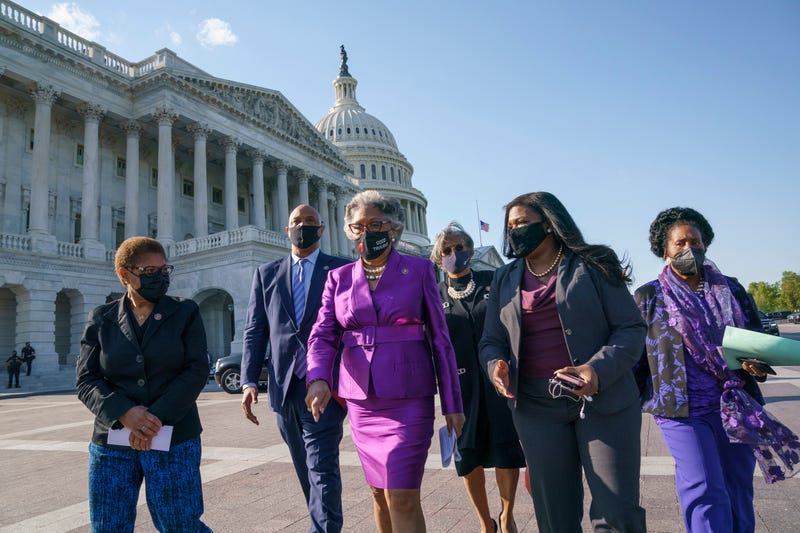
PHILADELPHIA (KYW Newsradio) — There’s a push in Congress, from members of both parties, to act on police reform following Derek Chauvin’s guilty verdict. The negotiations are centered around the George Floyd Justice in Policing Act.
New Jersey Sen. Cory Booker and other Black lawmakers in both chambers, have had talks for a while on the act, which passed the House in March. But it’s up to the Senate now, and Booker on MSNBC said now was the time to get it done.
“We need to heal police community relations and trust in law enforcement. So, there’s a lot we have to do and I think we can. This is the moment to make some strides towards a greater justice in our country,” Booker said.
The bill would tackle racial and religious profiling, ban chokeholds and no-knock warrants in drug cases, limit military-grade equipment at the local level while requiring body cameras, push for de-escalation training.
The bill would also allow police officers to be sued and damages awarded for violating people's constitutional rights, limiting "qualified immunity" protections now in place for law enforcement. And it would create a national databases of police misconduct in an effort to prevent "bad apple" officers from being hired by other departments.
“You have to, in any profession, know that if you grossly violate laws and civil rights that there’s consequences for that,” Booker said. “We’ve seen that kind of impunity that has led to a lot of folks deaths. As if these bad officers, the bad apples, do not think there will be consequences when they do these horrific things.”
Republicans have been arguing that getting rid of qualified immunity would hurt officers who act in good faith. One possible compromise would be to hold police departments accountable for wrongdoing instead of individual cops. Senator Tim Scott of South Carolina, the only Black Republican in the Senate, said he brought that idea up to Democrats and they are receptive to the possibility. Scott spoke to key Republican colleagues on Wednesday and indicated that negotiations with Democrats have been going well.
“We’ve made tremendous progress,” Scott said, adding that a deal could be in place within two weeks.
“Tim and I are friends. We’ve done big bills together before and he is a good faith actor and we are in conversations,” Booker said. “And I have some confidence that we can get something done. The question is: Will it be enough? So we can say it’s real reform, real change.”
Both parties could not come up with a compromise last summer, following Floyd’s murder. Scott introduced the JUSTICE Act in June, which was blocked by Democrats. The proposal called for de-escalation training, an increased use of body cameras and other measures that Democrats and organizations like the NAACP and ACLU said did not go far enough. The bill did not address qualified immunity or no-knock warrants.
The revived effort comes at a pivotal moment. The nation is on edge over the Floyd case, the deaths of other Black Americans — including a 16-year-old girl brandishing a knife about the time the Minneapolis verdict was announced — and almost a year of protests accusing police of brutal actions that often go unseen.
The guilty verdict for Chauvin was a rare occurrence, not least because in this case an officer's actions were recorded by a bystander and shown to the jury in court. That followed months of the video being played repeatedly on TV, imprinted in the minds of Americans everywhere.
With political pressure mounting on all sides, President Joe Biden is urging Congress to plunge back into policing legislation.
Biden spoke with George Floyd’s family on Tuesday following the Chauvin verdict. He vowed to fight for the passage of the bill that bears his name.
"We can't stop here," he said Tuesday after the verdict.
“The guilty verdict does not bring back George,” Biden said at the White House. “But through the family’s pain, they are finding purpose so George’s legacy will not be just about his death, but about what we must do in his memory.”


